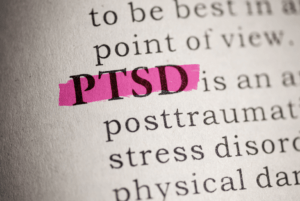
How VA Disability Advocates Can Help You Get More Compensation for PTSD
Unfortunately, post-traumatic stress disorder (PTSD) is common among military veterans. The condition is more common among veterans who served in certain times and places. For example, nearly 30% of veterans who served in Operation Iraqi Freedom or Operation Enduring Freedom have suffered from PTSD at some point. However, PTSD is not presumed service-connected.
That means a veteran pursuing VA disability benefits for PTSD must show that:
- They experienced a stressor or traumatic event during their military service,
- They have been diagnosed with PTSD, and
- The PTSD was caused or aggravated by the in-service event
Establishing a claim for PTSD and securing the right VA disability rating can be tricky, because:
- It’s up to the veteran to establish the incident that triggered the PTSD, even though people who suffer from PTSD aren’t always immediately aware of the condition, and
- Many veterans downplay their symptoms of PTSD and try to manage on their own for a time before getting treatment, meaning delayed diagnosis and difficulty documenting the onset date
- PTSD symptoms and the degree of disability can’t be readily measured by a scan or a blood test, which means additional and different types of evidence will be required
Working with an experienced VA disability benefits advocate from the beginning can help a veteran suffering from PTSD submit the strongest possible claim with the right type of supporting evidence. At Disabled Vets, our advocates work with veterans and their families daily to secure fair VA disability and related benefits. We know what’s required to establish a claim, what type of evidence the VA is looking for, and how to showcase the full extent of your symptoms and limitations for the decision-makers. To learn more about how we can help with your PTSD-related VA disability claim or appeal, call us right now at 888-373-4722 or fill out our contact form.
What Triggers PTSD in Military Service Members?
It’s probably no surprise that combat veterans often suffer from PTSD. Being in combat, sustained fear of hostility from the enemy, and other elements of combat service can be significant stressors. But, there are many other types of in-service events that may be connected to PTSD in service members. These may include directly service-related events or the same types of events that might trigger PTSD in a civilian.
Some examples include:
- Sexual assault
- Being the victim of battery or another violent crime
- Experiencing stalking or harassment
- Witnessing death or serious injury
- Being involved in a motor vehicle accident
This is only a partial listing of the types of traumatic events that may trigger PTSD. You should never assume that you won’t qualify for benefits or that you’ll be unable to prove your claim.
Getting the Highest Possible VA Disability Rating for PTSD
One of the most challenging aspects of a VA disability claim for PTSD is establishing the right VA disability rating. Your disability rating is important because it determines the benefits you’ll receive. The difference in monthly monetary benefits can be significant as your disability rating increases. Higher VA disability ratings may also entitle you to additional benefits, such as more comprehensive medical care and increased monthly benefits if you have eligible dependents.
For PTSD, the VA may assign a disability rating of 0%, 10%, 30%, 50%, 70% or 100%. At a 0% rating, a veteran doesn’t receive any monetary benefits but qualifies for medical care for the service-connected condition. In 2024, a veteran with a 100% disability rating can receive $3,737.85/month, and possibly more if they have eligible dependents.
Here’s what you need to know about getting the highest VA disability rating–and so, the highest compensation–available to you:
- Make sure you include all of your medical conditions when you file your claim–additional service-connected conditions, including other mental health conditions, can increase your overall disability rating
- Collect “buddy statements” to help the VA understand how your PTSD and other conditions impact your day-to-day life and limit your activities
- Make sure your condition is well documented, and that you provide all relevant medical records
- Make sure you promptly cooperate with any requests from the VA, such as asking for additional information or scheduling you for a C&P exam
Get Help from an Experienced VA Disability Advocate
One of the best ways to make sure you take full advantage of the opportunities above and others is to work with an experienced disability benefits advocate to prepare and file your claim. A seasoned advocate can assess what types of documentation and other evidence will be required to prove your claim, and what will have the most impact in establishing your VA disability rating. Your advocate can even advise you about additional steps you may want to take before filing or while your claim is pending, like seeing a specialist or undergoing additional testing, and who can provide the most useful information in a supporting letter.
If you’ve already been denied or have received a disability rating for PTSD that you think is too low, we also have the knowledge and experience to guide you through the appeals process. But, an appeal can delay your benefits by a year or more. The best way to get the benefits you deserve as quickly as possible is to have a knowledgeable advocate at your side from the very beginning.
If you’re ready to talk to an experienced advocate, call 888-373-4722 right now, or fill out our contact form here.



